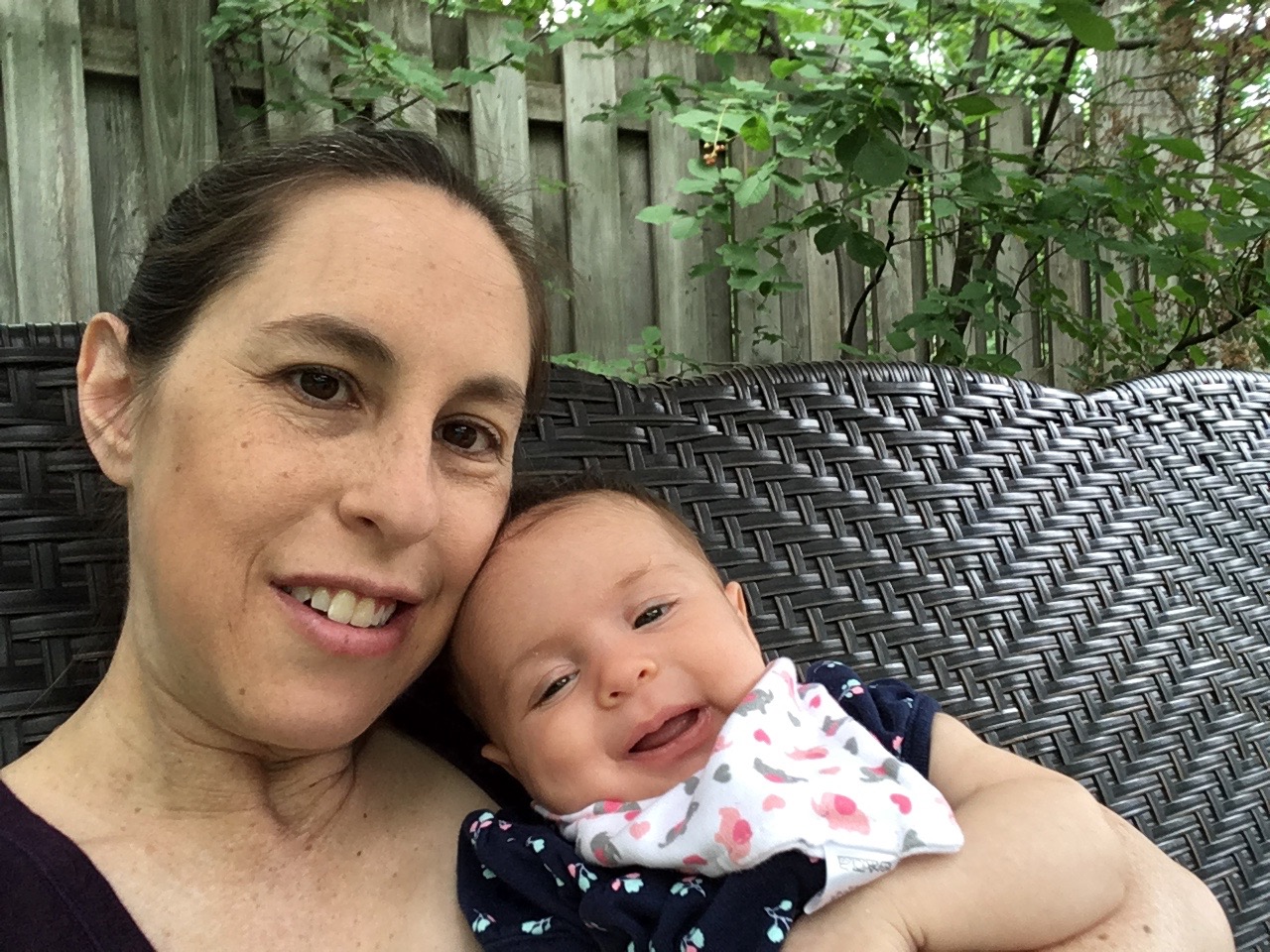I have three wonderful children who are the loves of my life. Like many women, I dreamed of being a mother for many years and consider myself lucky every day that I was blessed with such an incredible family. My third child, Nessa, my little miracle, did not come so easily, and I am thankful every day for her being in my life. I chose to take maternity leave with each of my three children, which I feel is a privilege given to Canadian women. However, while many people see maternity leave as a great benefit, it can also have damaging consequences to a woman’s job and career aspirations.
I also firmly believe that the new expanded parental leave, announced yesterday by the Federal government, will potentially cause further damage to a woman’s career.
Under the current system, a person (or couple) can take a leave from work for a total of 12 months following the birth of a baby (or start that leave up to 8 weeks before the child is born). During that period, a new parent (or parents) qualify to receive up to 50 weeks of employment insurance from the Government of Canada. I believe that comes out to up to $543 per week. Some employers top up pay for some or all of that time as well. Under the expanded leave, a total of 18 months can be taken off, but the financial benefits are not increased (just spread out thinner over a longer period of time).
I want to put the financial benefits of maternity leave aside. What I want to focus on is the job one “leaves” and what happens the next day after a woman has left the workplace to focus on her new baby. This has happened to me three times.
Each time I had a new baby I chose to go on maternity leave from a full-time job. I was at one place of employment when my first two children were born and another organization when my third child was born. As a communications professional, I worked in fast-paced demanding jobs with a lot on my plate. And I loved it. I knew that with the massive workload I had that someone else had to either take over my job or a group of people had to fill in for me while I was away. Life went on and work had to be done whether I was there or not. That’s the case for all women who go on maternity leave.
So, what happens when a woman is away from the office for just a few weeks, a few months, 12 months or now as many as 18 months? As I said, life goes on at work, people fill in and the organization creates a new normal. When my son was born in 2007, I was away for 8 months. When my daughter was born in 2010 I was away for 11 months. And the organization where I was employed went on and my colleagues worked hard and filled in for me.
After my first maternity leave I returned to my same job and went on with my day-to-day responsibilities. In fact, a few months later I even got a promotion. I worked hard and did my best to balance the demands of my job with the needs of my baby. I assumed the same thing would happen in 2011 when I returned to the same job after my second maternity leave.
But I was wrong. The organization where I worked was planning massive changes and a rebranding while I was away, and those changes were implemented weeks after I returned. I was told my job was eliminated.
I had just come off 11 months of maternity leave and had received almost 50 weeks of employment insurance benefits. I did not qualify to receive any more and thought that in Canada there was a system in place to protect young mothers who chose to take a leave from work to care for their young children. Our jobs, we were told, were protected, so that we could go away for a year and return to work. I understood that my exact job did not have to be given back to me but that a job equal to mine had to at least be available to me. It was, for a few weeks, then it was gone. Why? Because if an organization, for or not-for-profit, does a massive reorganization, it is not required to retain women on maternity leave. It is allowed to eliminate those jobs.
I was lucky that I quickly secured another job in 2011, one I loved very much. I received a number of promotions over the next few years, and by 2016, when Nessa was born, I managed a team of people and oversaw many files and projects at the company. While I did not make a final decision on how long I would be away from my job, I knew I wanted to take at least 4-5 months of maternity leave to spend time with my new baby.
When the baby was not quite 3 months old I was informed that my job had been eliminated. This time there was no company reorganization that I knew of. Various people had filled in for me, there was a new normal and they didn’t need me anymore. It didn’t matter that I was respected by my colleagues and made contributions to the organization over the previous five years. Out of sight, out of mind. So what if the Government of Canada had a maternity leave program? My employer didn’t care. My job was gone.
According to some research I found from Statistics Canada, which looked at the increasing maternity leave benefits from 1971 onwards, I read that “one aim of the 2000 amendment was to enable working parents to care for their infant longer and still allow them secure re-entry into employment” It added that “after the extension of parental benefits, all provinces and territories revised their labour codes to give full job protection of 52 weeks or more to employees taking paid or unpaid maternity or parental leave.”
Financial benefits aside, maternity leave was created, in-part, so that women could feel confident that they could walk away from a job to care for a baby knowing their job was secure and protected. But that is not the case. And the longer a woman is away from her job, potentially up to 18 months with the new expanded leave, the less security and protection she has.
If the Government of Canada is going to expand its parental leave program then it also needs to put in place strict rules that protect those parents’ jobs when they choose to take a leave to care for young children. As long as employers can eliminate a job during or soon after a maternity leave then it is not a true benefit. Canadian women need to know their careers can grow and their jobs are secure when they become new mothers and attempt the very difficult task of a balance between work and home. Until that happens, there is no such thing as a true maternity leave.


